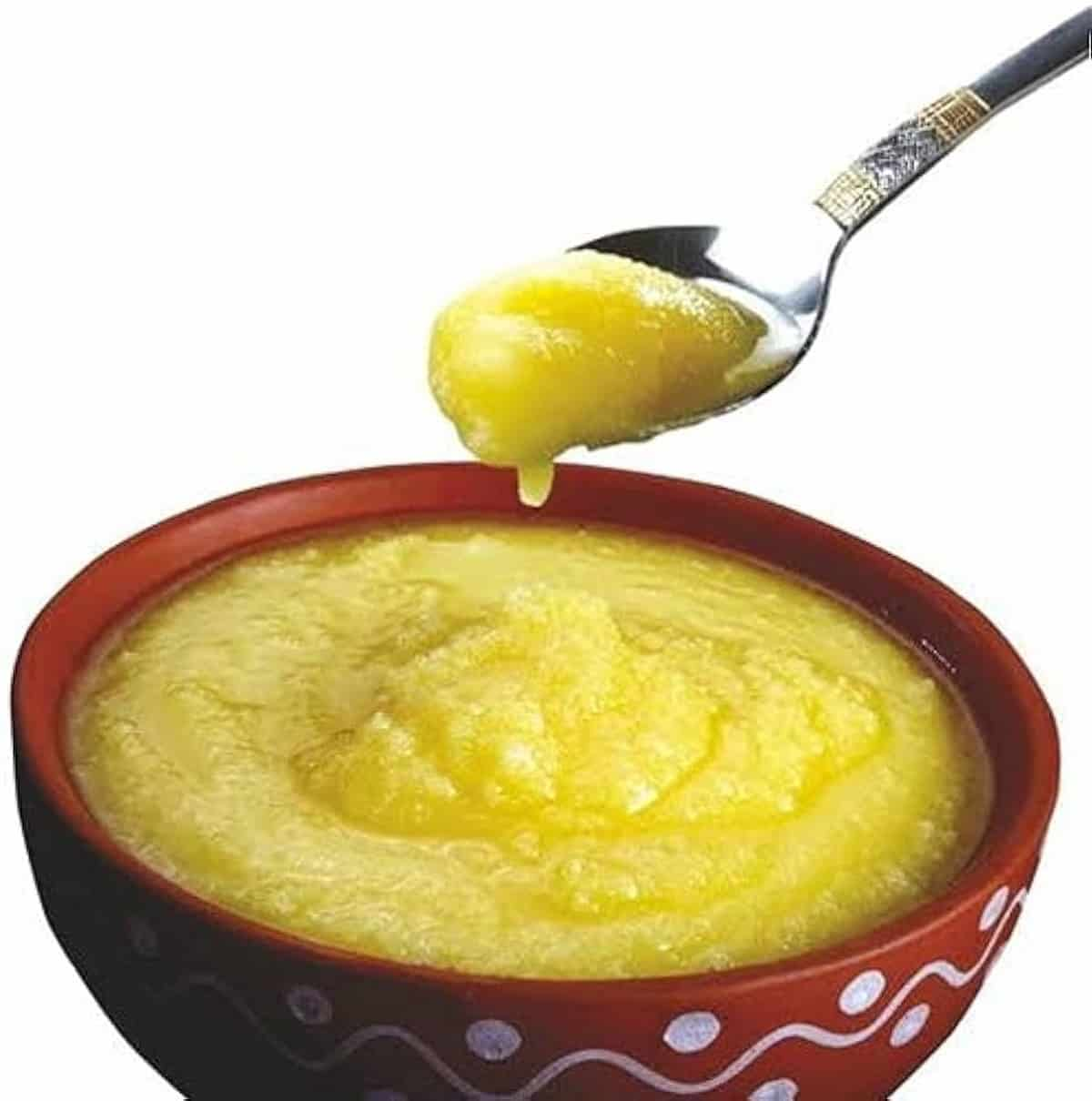Let’s break down the intricate world of Desi cow ghee economics based on the provided information:
Desi Cow Milk Fat Content:
Desi cow milk boasts 4% fat content. In simpler terms, for every 100ml of milk, there are 4 grams of fat. Scaling it up, 1000ml (1 litre) gives us 40 grams of fat.
Ghee Transformation:
Now, the alchemy begins. To produce 1kg of ghee, we need 25 litres of Desi cow milk. This translates to 1000 grams of fat obtained from the milk.
Cost Calculation:
Desi Cow Milk Scenario:
- 1 litre of Desi cow milk costs Rs100.
- 25 litres (needed for 1kg ghee) would cost Rs2500.
Non-Desi Breed Scenario:
- Cost of non-desi breed milk is Rs22/litre at the farmer’s doorstep.
- 25 litres x Rs22 = Rs550 per kg.
Adjustments for Realities:
- Not all cows consistently produce 4% fat.
- Fat content varies from 3% to 4% during the milking period.
- To account for variations, let’s assume around 30 to 35 litres of milk are needed.
Revised Cost Estimate:
- With non-desi breed milk, the cost should be between Rs3000 to Rs3500.
- Even if we assume milk is from non-desi breeds, the cost is significantly higher than Rs500.
Logistics and Production Costs:
- Logistics, heating, labor, packaging, and transportation of ghee to retail outlets add to the production costs.
- Considering these factors, the actual cost should be much greater than Rs500.
A Note on Ghee Quality:
- Ghee derived from the described process is considered pure and is associated with good cholesterol.
- Ghee derived from cream lacks the same enzymes and is considered bad cholesterol.
Real-World Example:
- A farmer in Hyderabad sells Desi cow ghee at Rs3200/kg.
In conclusion, the economics of Desi cow ghee involve a complex interplay of milk quality, fat content, production costs, and market factors. Whether it’s the purity of the process or the unique attributes of Desi cow milk, the true cost of this golden elixir goes beyond a simple price tag. Decide for yourself! 🥛🌾💸







